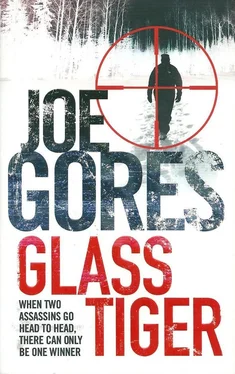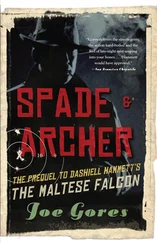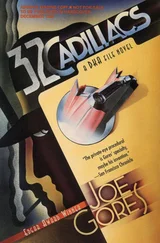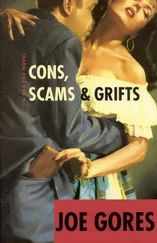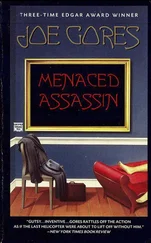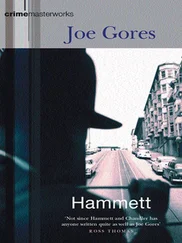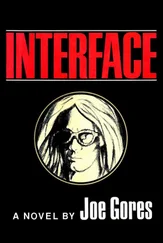Almost freeing him. He sighed. Even here, even for just a weekend, he could not escape the pressures of his job. A hardcopy of the first draft of his Fourth of July speech was lying unedited on his lap. Looking at the clock on the mantel above the huge stone fireplace, he felt a tightening in his chest. In one minute, Hatfield would be calling on the secure scrambler phone with his final report on the search for Thorne and that woman, Janet Kestrel. Depending on what Hatfield had to say, Wallberg might truly be free of that dark burden.
The phone buzzed discreetly. Wallberg lifted the receiver from its cradle with no visible tremor in his hand.
‘Terrill, happy Memorial Day.’
‘Thank you, Mr. President,’ came Hatfield’s unmistakable tones. ‘I hope you are being allowed to relax with your family.’
‘I’m on my way to a backyard barbecue right now. You have news for me?’
‘I have closure for you, Mr. President. Janet Kestrel is in custody. A week of sleep deprivation, no privacy, and interrogations around the clock. We have wrung her dry. I can assure you that Corwin did not pass on to her any dangerous knowledge of any sort.’
‘Outstanding!’ But Wallberg still had concerns. ‘When you release her, Terrill, won’t that leave us with a new problem? If she goes to the media—’
‘I am arranging for her permanent commitment to a mental institution as an incurable psychotic. She will have daily psychiatric counselling sessions that will be taped without the doctor’s knowledge. The more she insists on her story, the more apparent her psychosis will seem. If anything does surface...’
Wallberg’s burden was lifting, lifting.
‘How soon will you be able to get it done, Terrill?’
‘Within the week. Both parents dead, her father was an alcoholic, so I ordered the Los Angeles AIC, Sammy Spaulding, to work up a psychiatric history starting in her pre-teen years, fabricating a pattern of sexual abuse from age two on into her teens. I went through Quantico with Sammy, he’s a solid company man, and I’ve instructed him to make sure that the paperwork is bulletproof.’
Wallberg nodded his unseen approval as he listened to Hatfield giving him his life back. The man was worthy of his trust. But even with any threat from Kestrel neutralized, he still had to ask. Thorne was surely dead, had never met Corwin, but still he had been digging into the past.
‘Did the Kestrel woman have any information about Thorne?’
‘None. We know he was looking for her, but we found her before he could. She had never even heard his name until I questioned her.’
‘Any old Ranger friends he might have contacted? Those elite military types tend to stick together.’
‘His only Stateside contact was Victor Blackburn, that Ranger stationed at Fort Benning. We have been clandestinely monitoring his phone calls, letters, e-mails and faxes, twenty-four/seven. Nothing. Since Thorne disappeared into the Tuolemne River, he has reached out to no one, I mean no one. No contacts, no sightings. Mr. President, Brendan Thorne is dead.’
The final weight fell from Wallberg’s shoulders. All possible vestiges of anything Corwin might have known or recalled was gone from the face of the earth. Anyone he might have passed anything on to was dead. Or incarcerated as insane. He cleared his throat sententiously. He loved this part of being President: the chance to reward the loyal service of his underlings.
‘I know how fervently you want to serve your country, Terrill. Serious lapses by the current Director of the FBI will soon be brought to my attention. I think you will enjoy my Fourth of July speech.’ He paused. ‘Mr. Director.’
‘I...’ There was a catch in Hatfield’s voice. ‘I thank you from the bottom of my heart, Mr. President.’
‘You have earned the position, Terrill.’
Both men hung up simultaneously, each in his own way elated and transported by the conversation. Dreams really did come true. The good guys really did win out in the end.
It was the first of June, two days after Memorial Day. Brendan Thorne had gotten to Rochester, Minnesota the night before, coming north on 52 after driving east on 1-90 non-stop from Rapid City, South Dakota. Just after midnight he had checked into a modest, anonymous motel called The Highway near the junction overpass of 14 and 52 west of the city.
Tired as he was, he had known it would be a mistake to stay at one of the big downtown hotels like the Kahler. The Feebs checked places like that. The Highway Motel was neat, cheap, and clean, just blocks from St. Mary’s Hospital and about a mile from the Rochester Public Library on Second Street, S.W.
The library was an old-fashioned tan limestone building with a warm and welcoming air. In a glass-fronted display case were artifacts from the massive tornado in the last century that had devastated Rochester and led to the eventual establishment of the Mayo Clinic and St. Mary’s Hospital. One was a piece of wood with a straw driven through it by the force of the wind.
When the silver-haired and bosomy woman behind the counter finished checking out a stack of bright-jacketed kids’ books for a soccer mom, Thorne approached her. She had a severe Irish face but a pleasant smile.
‘That straw through the plank!’ he enthused. ‘Amazing!’
‘Good often comes from ill. The tornado was the making of this city.’
‘Well, it’s a fascinating display.’ He paused. ‘I’m hoping that your library has the Rochester Post-Bulletin newspapers from the Vietnam war era on file.’
‘Have you tried the Post-Bulletin itself?’
‘I’m much more comfortable in a library setting, ma’am.’
She gave him a warm smile. ‘I know exactly what you mean. We don’t have those newspapers on computer yet, not that far back, but we do have them on microfiche.’
Twenty minutes later, Thorne was threading film through one of the three reading machines in a small musty windowless room hidden away behind the library stacks. There was even a photocopy machine that turned out white-on-black thermal copies.
He worked with a great sense of urgency. He had to get the leverage to break Janet out before they drained her dry and stuck her away in some mental facility where he could never find her.
The year he wanted was 1966, the day was January first, New Year’s Day. He started turning the crank of the microfiche reader. When he left two hours later he had a thin sheaf of thermal copies from his research. He paid for them, carried them out to his Trooper, and drove back to his motel.
A warm breeze billowed the lacy curtains out into the room, then sucked them back against the screen. Diesel fumes from the highway mingled with the enticing smell of broiling meat from the steakhouse down the block. Thorne settled down with Chinese takeout and the photocopied news stories.
Thirty-nine years before, a fifteen-year-old girl named Heidi Johanson had been struck and killed by a Buick Skylark sedan driven by an eighteen-year-old boy named Halden Corwin. An anonymous caller reported that there was what looked like the body of a dead girl on a narrow snowy road off Highway 52 north of town, a half-mile from the Rainbow dance hall.
The Sheriff responded, and found the dead girl. Just as a call came in reporting a Buick sedan had been stolen, he found the car, run into a tree two hundred yards further down the road. Corwin was behind the wheel. He was taken to St. Mary’s Hospital ER with head lacerations. Heidi Johanson was taken to the morgue.
Heidi was a farm girl who had been two years behind Corwin at Rochester High School. She was seen at the Rainbow earlier that evening, dancing, perhaps intoxicated, perhaps with Corwin. Nobody was sure. Her injuries were devastating, instantly fatal.
Читать дальше
